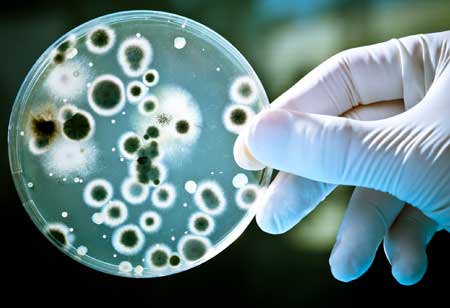THANK YOU FOR SUBSCRIBING
Antimicrobial Resistance Remains a Serious Concern for Global Health
The invention that antibiotics can treat bacterial infections has dramatically altered human health, and it has now become possible to cure many deadly infections.

By
Apac CIOOutlook | Monday, April 01, 2019
Stay ahead of the industry with exclusive feature stories on the top companies, expert insights and the latest news delivered straight to your inbox. Subscribe today.
The invention that antibiotics can treat bacterial infections has dramatically altered human health, and it has now become possible to cure many deadly infections. Yet some bacteria are no longer effectively killed by antibiotics. These bacteria are known as resistant to antibiotics and are a growing medical problem. Over long periods of time, frequent antibiotic use places selective pressure on bacteria and causes spreading resistance. When a typical bacterial infection is treated with an antibiotic, most bacteria are killed. However a bacterium with an advantage lives sometimes.
Antimicrobial resistance remains a serious concern for global health, and solutions are urgently needed to address this. This is not only the case in developed countries where several policies are governing the use of these drugs, and the ability to evaluate antimicrobial resistance levels exists. In the human intestine, there are trillions of microorganisms, mostly bacteria. Most of these are antibiotic-sensitive, but a significant number of bacteria in the human intestine have mechanisms that make them antibiotic resistant. Researchers, however, still lack a mechanistic understanding of the genes in gut bacteria that confer antibiotic resistance.
Key Healthcare companies: 360Medlink, CareClix, DataSoftLogic
In collaboration with Professor Willem van Schaik at the University of Birmingham, a team of researchers led by the National Institute of Agronomic Research (INRA) in France developed a new method for identifying resistance genes in gut bacteria by comparing three-dimensional structures of known antibiotic resistance enzymes with the proteins produced by gut bacteria.
The researchers applied this method to a catalog of several million gut genes, identifying more than 6,000 genes of antibiotic resistance that are very different in pathogenic bacteria from previously identified genes. By comparing the structures of known antibiotic resistance proteins to proteins produced by human intestinal bacteria, thousands of new genes of antibiotic resistance have been discovered in the human intestine, highlighting the immense diversity of antibiotic resistance genes. Most of these genes seemed to be present in bacteria living in a harmless relationship with the human host, so they may not pose an immediate threat to human health. However, continued administration of antibiotics results in such resistance genes that are being transferred to pathogenic bacteria, further reducing the effectiveness of antibiotics in the treatment of infections.
It is essential for antimicrobials to save lives. Widespread concern has resulted in a plethora of government and agency reports advocating less and better use of antimicrobials, better control of infections, and new drug development. However, as antimicrobial resistance becomes increasingly widespread without any plausible association with the use of these drugs, other strategies need to be taken seriously to prevent the emergence and spread of antimicrobial-resistant bacteria.
Check out: Top Healthcare Technology Companies





